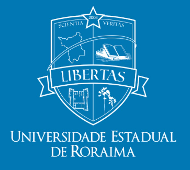Universidade Federal de Santa Maria
The Federal University of Santa Maria is a public, federal higher education institution in Brazil, situated in the city of Santa Maria, in the central part of the state of Rio Grande do Sul. The city is located 290 Km west from the State Capital, Porto Alegre. Established in 1961, UFSM is a governmental, regionally oriented University which has as main purpose to perform teaching, research and extension activities. UFSM has as mission professional formation, generating and cultivating science and technology in the interest of regional development and the transmission of universal knowledge. It was the first Federal University established upstate in Brazil.
The Ecoinovar Research Group at UFSM hosts the GERBRAS-SCIENCENET Office at the institution. The studies and research carried out at Ecoinovar contribute to an understanding of issues related to sustainable innovation processes and sustainable urban development, supporting the formulation of innovation and circular economy policies, the construction of innovative and sustainable business models, climate change management and the development of smart, sustainable and resilient cities.
Coordination: Prof. Dr. Roberto Schoproni Bichueti
Team involved: Researchers from the Ecoinovar Research Group: Prof. Dr. Jordana Marques Kneipp, Prof. Dr. Clandia Maffini Gomes, Dr. Kamila Frizzo, Prof. Dr. Lucas Veiga Ávila, Gabriela Dubou.
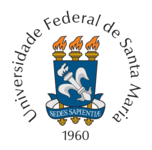
Universidade de São Paulo
The GERBRAS-Southeast Office refers to a group of researchers collaborating under GERBRAS- SCIENCENET, without the existence of a dedicated physical unit. It represents a formalized structure for cooperation among the participating members who are professors at School of Economics, Business Administration and Accounting at Ribeirão Preto – University of São Paulo, and the Department of Production Engineering – Polytechnic School – University of São Paulo (PRO-Poli-USP). The University of São Paulo (USP) is a Brazilian public institution, established in 1934 and funded by the State of São Paulo. This means that no student pays tuition to study at the university, which is entirely supported by state taxes. In the Brazilian system, public and free education is known for offering the highest quality in teaching, research, and community outreach, the three pillars that underpin the Brazilian public university system. For this reason, USP rises in international rankings each year and consistently ranks first, not only in Brazil but throughout Latin America.
The School of Economics, Business Administration, and Accounting (FEA-RP) was established in Ribeirão Preto in 1992. Since then, it has offered undergraduate and graduate programs in the fields of business administration, economics, and accounting.
The Polytechnic School was founded in 1893 and holds the distinction of being the first engineering institution in the state of São Paulo, Brazil, even preceding the establishment of the University of São Paulo (USP) itself in 1934. Since then, the Polytechnic School has continually offered a comprehensive array of undergraduate and graduate programs across various engineering disciplines. Among these, the Department of Production Engineering (PRO-Poli-USP) stands out for having initiated the very first course in this specialized area in Brazil.
Coordination: Prof. Dr. Marina Toledo Lourenção Rocha (FEA-RP), Tiago Fonseca Albuquerque Cavalcanti Sigahi (PRO-Poli-USP)
Team involved: FEA-RP: Prof. Dr. Adriana Caldana, Prof. Dr Alexandre Dias, Prof. Dr Silvia Dallavalle , José Eduardo Pires de Oliveira, Lara Letícia Donegá Carreira, Maria Laura Salomão David; PRO-Poli-USP: Thayla Tavares de Sousa Zomer, Ana Paula Franco Paes Leme Barbosa

Universidade Federal da Paraíba
The Federal University of Paraíba (UFPB), located in the Northeast region of Brazil, is the largest higher education institution (HEI) in the state of Paraíba. UFPB offers 127 undergraduate and 111 postgraduate programmes, serving a community of 38,880 students across its 16 academic centres. The university has established various bodies to implement and oversee sustainable development initiatives, including the Environmental Management Commission, the Cartography and Geoprocessing Laboratory, and the Engineering Laboratory of Sustainability and Consumption (LabESC).
Currently, UFPB monitors the implementation of several programmes designed to embed sustainability practices throughout the institution. Notable examples include the following: Conscious Consumption Programme, Construction and Demolition Waste Management Programme, Special Waste Management Programme, Healthcare Waste Management Programme, Chemical Waste Management Programme, Green Areas Management Programme, Water Management Programme, Energy Efficiency Programme, Sustainable Use and Occupancy Programme, Environmental Education Programme.
These initiatives reflect UFPB’s commitment to promoting sustainability and fostering responsible practices within its academic and administrative structures.
Coordination: Dr. Claudio Ruy Portela de Vasconcelos
Team Members: Dr. Renate Maria Ramos Wellen, Dr. Joácio de Araújo Morais Júnior, Dr. Nadjacleia Vilar Almeida, Dr. Darlan Azevedo Pereira, MSc. Alessandra Berenguer de Moraes.

University of Southern Santa Catarina
The University of Southern Santa Catarina (UniSul) is a forward-thinking educational institution dedicated to the production, development, and dissemination of knowledge through research, teaching, and community engagement. Offering programs across all levels and fields of knowledge, both in-person and online, UniSul attracts students from across Santa Catarina, Brazil, and beyond.
Founded in Tubarão, UniSul is deeply rooted in Southern Santa Catarina, the Greater Florianópolis region, and Itajaí, where it expands social, cultural, and educational opportunities while positioning higher education in Santa Catarina among the best in Brazil.
The Center for Sustainable Development (Greens) is a leading research group dedicated to advancing the global sustainability agenda. With over 40 researchers from Brazil, the United Kingdom, India, Bhutan, and the United States, Greens operates as a hub for interdisciplinary research and innovation aimed at addressing critical global challenges. The Greens team’s collaborative efforts transcend borders and disciplines, making it a key player in fostering knowledge, strategies, and solutions for a sustainable future.
Coordination: Professor José Baltazar Salgueirinho Osório de Andrade Guerra
Team involved: Professor Ana Regina de Aguiar Dutra, Professor Anelise Leal Viera Cubas and Clarissa Carneiro Mussi.
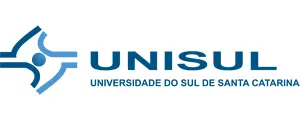
Federal University of Western Pará (UFOPA)
Ufopa was ranked as the most sustainable higher education institution in the North of Brazil IN 2020. In the overall ranking, it appears in 103rd place among the most sustainable in Latin America, according to the UI Greenmetric World University Ranking 2020 survey, led by the University of Indonesia, which evaluates the sustainability actions of higher education institutions around the world. The mission of the Federal University of Western Pará is to “Socialize and produce knowledge, contributing to citizenship, innovation and development in the Amazon”. Its faculty is mostly composed of PhDs working in the areas of environmental, climate, biological and agricultural sciences, with highly qualified scientific production published in high-impact journals and with production of specialized human resources at undergraduate and graduate levels, having financed research carried out by the academic community through internal funding calls and raising of external resources with a view to strengthening the research infrastructure and promoting scientific and technological development regarding the conservation of natural resources, water and food security and training of human resources. The University's vocation for studies related to the environment is evident when analyzing the undergraduate courses offered (Agronomy, Forestry Engineering, Animal Science, Biological Sciences, Sanitary and Environmental Engineering, Environmental Sciences, Atmospheric Sciences, Biotechnology, Fisheries Engineering), as well as the Postgraduate programs (Natural Resources of the Amazon; Society, Nature and Development; Biosciences; Biodiversity).
Coordination: Prof. Dr. Gabriel Brito Costa
Team involved: Dr. Theomar Neves, Dr. Lucas Peres, Dr. Antônio Andrade, Dr. Alex Silva, Dr. Iolanda Reis, Dr. Iracenir Santos, Dr. Aurilene Andrade.
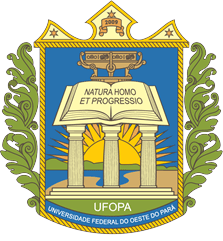
Fucape Business School
Founded in 2000, Fucape Business School is part of an exclusive group of Higher Education Institutions (HEIs) in Brazil to consistently receive the highest possible score (5) on the General Course Index (IGC) from the Ministry of Education (MEC). This top classification has been maintained for over a decade. Fucape is ranked among the top 5 business schools in the country and holds the number 1 position in the state of Espírito Santo.
The institution is recognized for promoting and applying innovative concepts in education. It offers a full range of programs in the field of business, from undergraduate to doctoral levels.
Coordination: Lara Sepulcri (internationaloffice@fucape.br)
Team Members: Lara Sepulcri, Carlos Neris, Talles Alves, Yanelis Villaverde

University of Pernambuco (UPE)
University of Pernambuco (UPE) is one of Pernambuco´s (State of Brazil) leading universities. Its mission is to contribute to the sustainable development of Pernambuco State through education, research and university extension. UPE is a public institution of higher education, present in all regions of the State. Its multicampi complex consists of three major teaching-hospitals, 17 school units spread across the area of Recife and the cities of Camaragibe, Nazaré da Mata, Palmares, Caruaru, Ouricuri, Garanhuns, Arcoverde, Salgueiro, Serra Talhada, Surubim and Petrolina. In addition, the administrative headquarters (Reitoria), four elementary and high schools (Escola do Recife e Escolas de Aplicação) are also part of the university campus.
In order to establish academic, scientific and cultural cooperation, the UPE maintains cooperation agreements with universities and research institutes in the Americas, Europe, Asia and Africa, reaffirming the policy of expanding the international relations of the university. The university aims to be dully recognized by government and by society at large for its contribution to the sustainable development of all the regions in which it is present, due to its excellence in teaching, research and university extension, thereby definitively assuming the character of a state, public and tax-free university. The entire university community is made up of 1,241 faculty members, 4,689 other employees, and 17,526 students: 13,781 undergraduate and 3,745 graduate (lato and stricto sensu). UPE has also 14,460 students in special programs (preparatory for university exams) and 2,012 in elementary and high school.
Coordination: Prof. Dr. Emilia Rahnemay Kohlman Rabbani (President of NS-UPE)
Team involved: Prof. Dr. Maria do Socorro de Mendonça Cavalcanti; Prof. Dr. Walma Nogueira Ramos Guimarães; Prof. Dr. Claudio P. da Costa; Elaine Cristina Alves, M.Sc.; Patricia M. Nery S. Lima; Prof. Dr. Marleny E. M. M. Gerbi; Prof. Igor Lapsky da Cota Francisco.
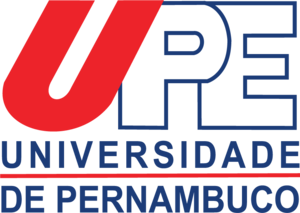
Federal University of Rio de Janeiro (UFRJ)
The Federal University of Rio de Janeiro (UFRJ) is one of Brazil’s most prestigious and influential public universities, recognized for its academic excellence and leadership in research across a wide array of disciplines, including engineering, natural sciences, health, social sciences, and the arts. UFRJ plays a central role in advancing science, technology, and innovation in Brazil and Latin America. With a strong commitment to social responsibility and sustainable development, UFRJ fosters collaboration with national and international institutions to address major societal and environmental challenges.
The IMA-UFRJ (Institute of Macromolecules Professora Eloisa Mano) is one of UFRJ’s leading research centers, dedicated to the development of advanced polymeric materials for applications in energy, health, and the environment. It hosts interdisciplinary research programs and contributes significantly to technological progress through the synthesis, characterization, and application of functional materials in areas such as organic electronics, photovoltaics, and biomaterials.
Coordination: Prof. Dr. Maria de Fátima Vieira Marques
Team Members: Dr. Lucas Galhardo Pimenta Tienne, Dr. Isabela Custódio Mota
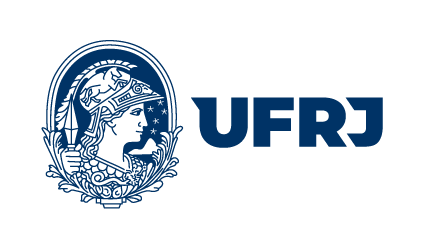
Pontifícia Universidade Católica do Paraná (PUCPR) - Escola de Negócios
Educational excellence, innovation-driven entrepreneurship, and multi and intercultural learning shape PUCPR’s primary purposes. As a result, the Pontifícia Universidade Católica do Paraná has earned national and international recognition through the world’s most important higher education ranking: The Times Higher Education, which has placed PUCPR among the top universities in Brazil. With more than 60 years of dedication to higher education and research, PUCPR is the largest private higher education university in Paraná and one of the most reputable universities in Brazil. PUCPR provides education to skilled professionals to act as transforming leaders in society. Through promoting ethical values and commitment to the local and regional community, PUCPR has established its identity, contributing substantially to building a better society. Over time, PUCPR has graduated over 100,000 students. The University has taken a path towards globalization by integrating several cultures and sharing knowledge internationally. PUCPR is becoming a key promoter of innovation and is strengthening a network that stimulates knowledge sharing and applied research. The Pontifícia Universidade Católica do Paraná, guided by ethical, Christian, and Marist principles has as its Mission the development and dissemination of knowledge and culture and the promotion of comprehensive and permanent qualification of citizens and professionals committed to the life and to the progress of the society.
Coordination: Prof. Dr. Fernanda Frankenbereger
Team involved: Prof. Dr. Ubiratã Tortato

Universidade Federal do Piauí (UFPI)
The Federal University of Piauí (UFPI) is a federal institution of Higher Education headquartered in the city of Teresina - State of Piauí and with campuses in the cities of Picos, Floriano and Bom Jesus. UFPI's mission is to promote higher quality education, with a view to training individuals committed to ethics and capable of acting in favor of regional, national and international development.
The working group “Forest management: best practices for responsible investments in the bioeconomy era” works on the study of native, planted and urban forests in different regions of Brazil, with a focus on the development of the forestry sector in the southern region of Piauí state. We know that forests are vital to the well-being of society, particularly as carbon dioxide sinks; habitats for biodiversity conservation; providers of important environmental services and sources of economic opportunities. In this context, the rational and sustainable use of forest resources is of utmost importance, and the planning of this use is governed by forest management. In the era of the bioeconomy, decision-making aimed at the management of forest resources must answer many questions, from forest implementation to final cut. Thus, the group develops studies and applications of analytical techniques for the maintenance and adequate use of forest cover, in the necessary quantity and quality, maintaining the diversity and sustainability of forests.
Coordination: Profa. Dra. Andressa Ribeiro
Team involved: Prof. Dr. Antonio Carlos Ferraz Filho, Prof. Dr. Rodolfo Molinário de Souza
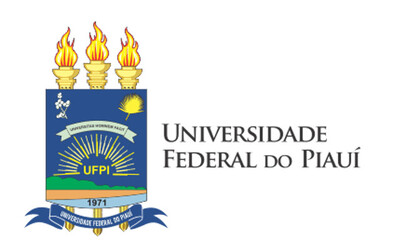
Instituto Federal Goiano – Campus Urutaí
The research activities at our institution are carried out through a dedicated Post-Harvest and Advanced Seed Technologies Laboratory. This facility focuses on developing sustainable and innovative approaches for the analysis, conservation, and enhancement of native seeds, integrating traditional knowledge with modern tools such as image analysis and artificial intelligence.
Coordination: Prof. Dr. Rute Quelvia de Faria
Team involved: Undergraduate research students and researchers in the fields of Agricultural Engineering and Information Technology.
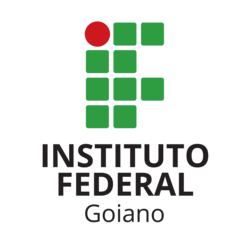
Universidade Federal do Tocantins
The Federal University of Tocantins (UFT) has stood out for its strong commitment to sustainability through integrated actions in institutional management, teaching, research, and community outreach, addressing topics such as renewable energy, biomass, new materials, and climate change. As one of the first institutions in the Northern Region to join the UniSustainable Network, UFT had 17 projects recognised with the 2024 SDG Education Seal and promotes social impact through initiatives such as skills training and ecotourism. Investments like the installation of a solar power plant on the Palmas campus and the development of biodegradable composites demonstrate its focus on sustainable solutions. The university also encourages applied research in alternative energy sources, sanitation, water resources, and climate policy, with strong engagement from its postgraduate programmes and CNPq-certified research groups, reaffirming its strategic role in advancing sustainable development both regionally and nationally.
Coordination: Prof. Dr. Joel Carlos Zukowski Junior
Team involved: Profa. Dra. Michele Ribeiro Ramos, Prof. Dr. Aurélio Pessoa, Picanço, Prof. Dr. Gabriel Lima Oliveira Martins, Profa. Dra. Roberta Mara de Oliveira Vergara, Prof. Dr. Marcio Jose Catalunha, Prof. Dr. David Gabriel de Barros Franco, Prof. Dr. Juan Carlos Valdés Serra, Profa. Dra. Lina María Grajales, Prof. Dr. Bruno Carrilho de Castro
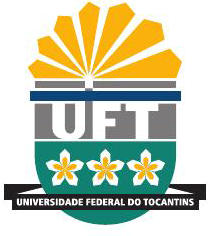
Universidade Nilton Lins
The definition of the University’s role presupposes social responsibility for the global development of the region, which is characterized in its Institutional Mission: “Educating the Amazon.” This mission encompasses an ecological and dialogical relationship with society, aiming at the dissemination of achievements and benefits resulting from the cultural creation and the scientific and technological research generated within the Institution.
Coordination: Juliano Manoel Brito Braga
Team involved: Prof. Cleuciliz Santana, Prof. Ernani Jesus

Universidade Estadual de Roraima (UERR)
The State University of Roraima (UERR) is a public institution of higher education established in 2005 through state law, with the mission of promoting educational, scientific, and cultural development in the state of Roraima. With a physical presence across three campuses — the Rectorate, Boa Vista, and Rorainópolis — UERR also ensures access to higher education in all municipalities through its Distance Learning (EaD) programs. Research and innovation are core pillars of the university, which currently hosts 125 registered research projects focused on themes such as agroecology, biodiversity, health, education, sustainability, and traditional knowledge. UERR’s extension activities play a vital role in connecting the university with society, valuing local knowledge and reinforcing its commitment to sustainable regional development. Its strong regional presence and alignment with the Sustainable Development Goals (SDGs) position the university as a transformative public institution, engaged with the social, environmental, and cultural challenges of the 21st century.
Coordination: Prof. Dr. Ismar Borges de Lima
Team involved: Prof. Dr. Leila Chagas de Souza Costa, Prof. Dr. Flávia Antunes, Prof. Dr. Plínio Henrique Oliveira Gomide
